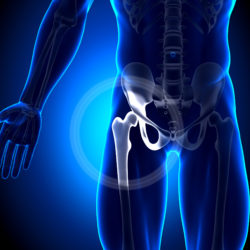 For the third time in five years, Stryker has had to recall an metal-on-metal hip implant system due to defective design.
For the third time in five years, Stryker has had to recall an metal-on-metal hip implant system due to defective design.
The most recent 2016 Stryker hip recall involves the LFIT Anatomic V40 femoral heads utilized in the Accolade, and also the Rejuvenate and ABG II hip modules.
Specifically, LFIT Anatomic V40 femoral heads manufactured before 2012 are experiencing a high failure rate, and the company has issued a voluntary recall of the medical devices.
The defect can result in immense pain, mobility issues, broken bones, cobalt poisoning, chromium toxicity, metallosis, and complete hip revision surgery.
Why is there a 2016 Stryker Hip Recall?
The LFIT V40 was intended to replace the upper end of the thigh bone, or femur – specifically, the top ball-like protrusion that fits into the socket of the hip (acetabular cup). The company identified the defect as being in the taper lock, which is what connects the product to the stem of the femur.
These taper locks have been failing at an alarming rate, leading to the latest 2016 Stryker hip recall.
The primary problem is that the LFIT V40 becomes separated from the femoral stem because of a purportedly faulty taper lock. The taper lock connects the femoral head and femoral neck of the hip prosthesis. If the taper lock fails, patients could experience severe complications including:
- Loss of mobility
- Pain
- Inflammation
- Adverse Local Tissue Reaction
- Dislocation
- Joint Instability
- Broken bones around the components
- Leg length discrepancy
- Need for Revision surgery
One of the more serious effects is the release of small bits of toxic metals into the surrounding tissue and bloodstream. This causes a condition known as metallosis, which results in severe inflammation and necrosis of bone and muscle tissue.
In some cases, the LFIT V40 fails completely, fracturing and causing the patient’s own femur bone to break.
Stryker Notifies Hip Replacement Surgeons
Stryker has also written to orthopedic surgeons who have implanted the LFIT V40 to alert them to an increased incidence of taper lock failure. Stryker notified them that potential issues related to this failure include:
- Disassociation of the femoral head from the hip stem
- Fractured hip stem trunnion
- Increased metallic debris
- Insufficient range of movement
- Insufficient soft tissue tension
- Noise
- Loss of implant
- Bone fixation strength
- Increased wear debris
- Implant construct with a shortened neck length
Prior to the 2016 Stryker hip recall of the LFIT V40, two previous models – the Rejuvenate and ABG II – were found to corrode, causing small metal bits to become embedded in the surrounding tissues.
When those models were recalled in 2012, Stryker stopped all production on those products. Ultimately, problems with the Rejuvenate and ABG II cost Stryker in excess of $1 billion to settle the cases.
If you’ve been affected by a hip replacement system included in the 2016 Stryker hip recall or other Stryker recalls, you should speak with a qualified attorney to assess your legal options.
Do YOU have a legal claim? Fill out the form on this page now for a free, immediate, and confidential case evaluation. The hip implant attorneys who work with Top Class Actions will contact you if you qualify to let you know if an individual lawsuit or class action lawsuit is best for you. [In general, metal hip implant lawsuits are filed individually by each plaintiff and are not class actions.] Hurry — statutes of limitations may apply.
ATTORNEY ADVERTISING
Top Class Actions is a Proud Member of the American Bar Association
LEGAL INFORMATION IS NOT LEGAL ADVICE
Top Class Actions Legal Statement
©2008 – 2025 Top Class Actions® LLC
Various Trademarks held by their respective owners
This website is not intended for viewing or usage by European Union citizens.
Get Help – It’s Free
Join a Free Stryker Metal Hip Replacement Class Action Lawsuit Investigation
An attorney will contact you if you qualify to discuss the details of your potential case at no charge to you.
Please Note: If you want to participate in this investigation, it is imperative that you reply to the law firm if they call or email you. Failing to do so may result in you not getting signed up as a client, if you qualify, or getting you dropped as a client.
Email any problems with this form to [email protected].
Oops! We could not locate your form.












